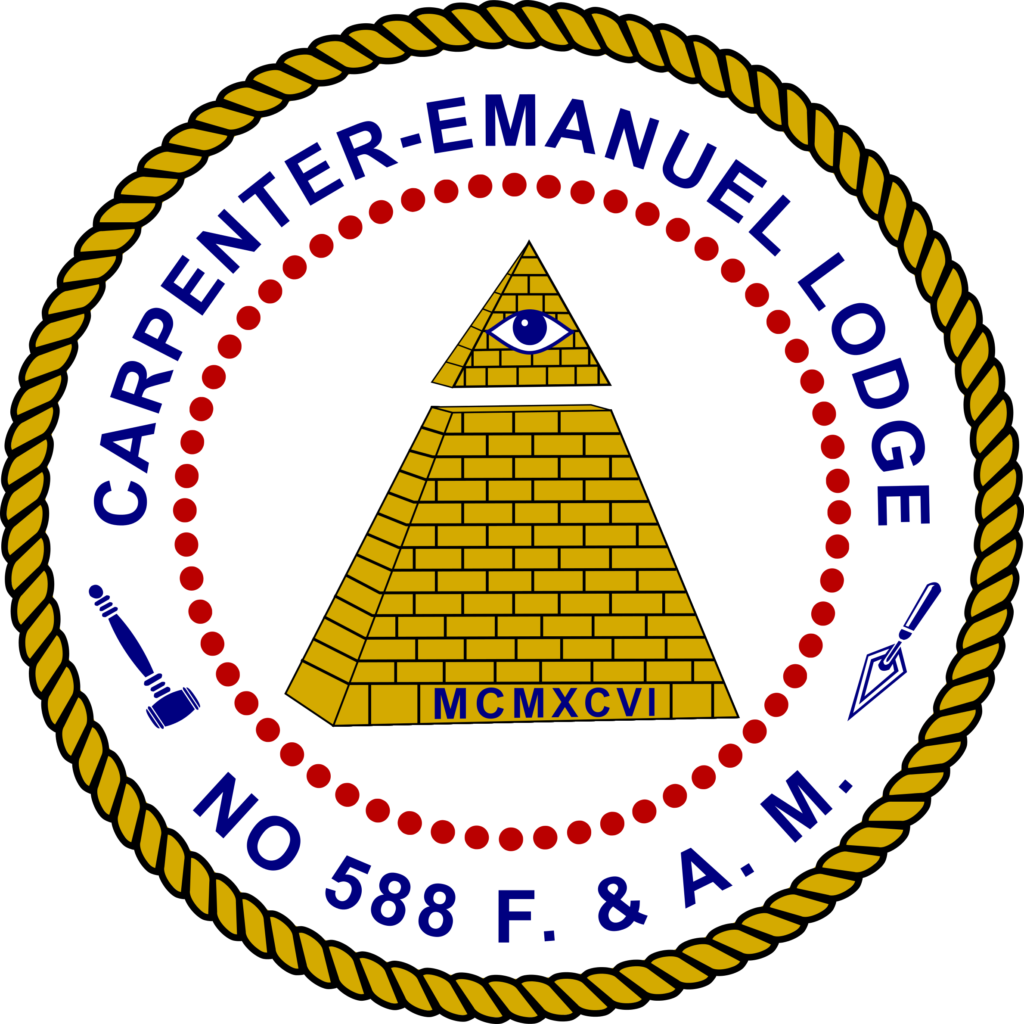Carpenter-Emanuel Lodge History
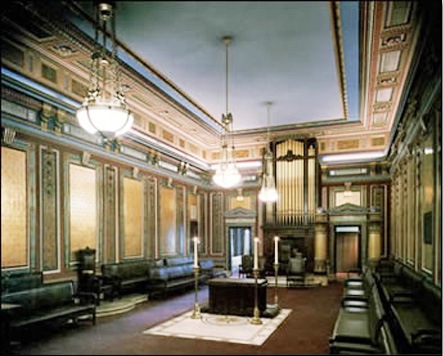
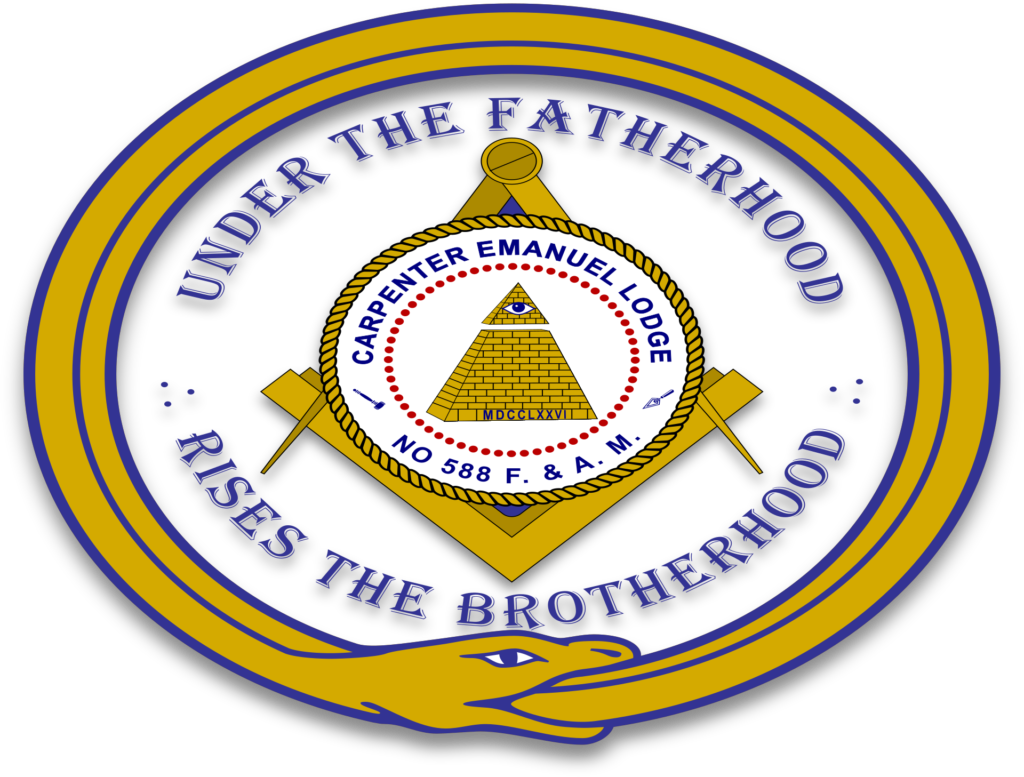
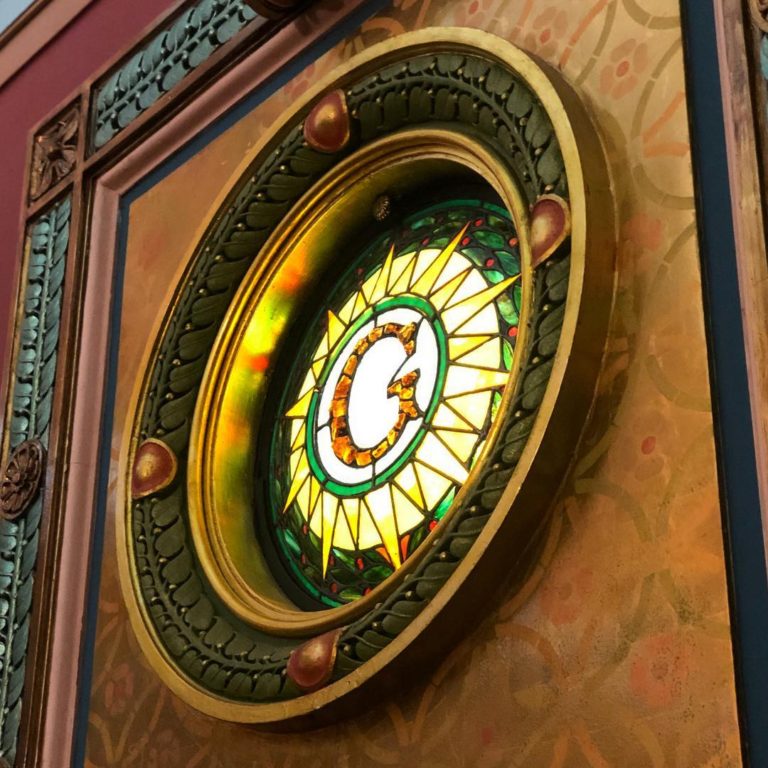
Carpenter-Emmanuel Lodge No. 588 is the final element of what originally consisted of 5 separate lodges:
- Globe Lodge No. 588
Founded under Dispensation: August 4th, 1865
Chartered: June 20th, 1866
Charter members consisted primarily of New York City Civil Servants - Copestone Lodge No. 641
Founded under Dispensation: February 16th, 1867
Chartered: July 20th, 1867
Charter members consisted primarily of Tradesmen and Laborers - Daniel Carpenter Lodge No. 643
Founded under Dispensation: February 20th, 1867
Chartered: December 5th, 1867
Charter members consisted primarily of New York City Police Officers - Emanuel Lodge No. 654
Founded under Dispensation: February 25th, 1867
Chartered: July 26th, 1867
Charter members consisted primarily of Attorneys & Entrepreneurs - Stanley Lodge No. 1051
Founded under Dispensation: June 1st, 1925
Chartered: May 26th, 1926
Charter members consisted primarily of Accountants & Businessmen
| May 8th, 1974 | Globe, Copestone, and Carpenter lodges merged forming Daniel Carpenter Lodge No. 588 |
| May 1st, 1973 | Emanuel and Stanley Lodges merged forming Emanuel Lodge No. 654 |
| April 29th, 1996 | Daniel Carpenter and Emanuel Lodges merged forming Carpenter-Emanuel Lodge No. 588 |
Daniel C. Carpenter (c. 1816 – November 15, 1866) was an American law enforcement officer and police inspector of the New York Police Department. He was one of earliest leading detectives on the police force during the mid-19th century and also had a prominent role in the Police Riot of 1857 and New York Draft Riots in 1863. His successful defeat of the rioters was the largest, and perhaps most crucial, battle during the riot. Fought in front of the Metropolitan Police headquarters, Carpenter’s victory saved the New York financial district from falling into the hands of the rioters.
Daniel Carpenter Lodge seems to have been primarily composed of New York City police officers (as the Real Daniel Carpenter was) as it buried one of its own in 1887 as detailed in a New York Times article titled “Honoring the Dead”. Members of Daniel Carpenter Lodge attended and conducted a Masonic Funeral for a Mr. Robert Montgomery, a murdered roundsman from the 25th precinct in Manhattan.
Izzy and Moe
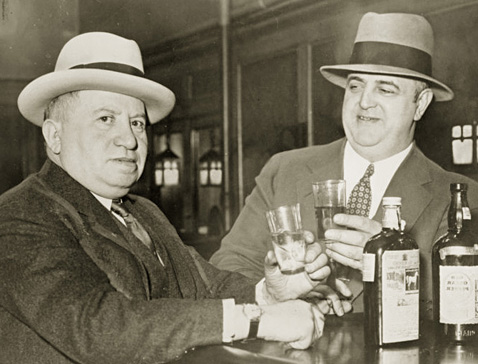
The 18th Amendment was ratified by 46 of the 48, states and went into effect on January 16, 1920, so now America was dry.
Bro. Moe W. Smith was raised a Master Mason in Emanuel Lodge No. 654 on November 8, 1922. His friend, Bro. Isadore “Izzy” Einstein, was affiliated with Emanuel Lodge on December 13, 1922.
Moe Smith played the Dr. Watson to Izzy Einstein’s Sherlock Holmes, and they were probably the only two prohibition agents whom the public liked.
They operated in the first years of Prohibition, 1920 to 1925, when it was comparatively hard to get a drink; the years when bartenders peered out through peepholes and new customers had to go through the formalities of presenting admission cards or saying “Joe sent me.”
Moe, although somewhat in the role of straight man, was a highly effective agent, but Izzy (the human chameleon), with his numberless disguises, was the color and front man. He was, in turn, a traveling salesman, a street cleaner, a banker, a bartender, a grave digger, a streetcar conductor, a Texas cattleman and, in Hollywood, a movie extra. You name it, he played the part.
The pair closed innumerable speakeasies in every imaginable way. A speakeasy around Van Cortland Park was padlocked after Izzy arrived in a mud-covered football uniform and announced that the gridiron season was over and he was ready to break training. In Coney Island, he entered a drinking joint in a wet bathing suit, shivering and gasping for aid. Wearing an attendant’s white jacket, he shut another saloon near a hospital.
Izzy once tossed his agent’s badge on the bar of a Bowery saloon and — this fat, unkempt individual — asked for a pint of whisky for “a deserving prohibition agent.” The bartender sold it to him, thinking him a great wit.
Izzy and Moe, rotund and cheerful men, made life so miserable for the prohibition-law violaters, that waiters, bartenders and speakeasy proprietors feared to sell liquor to anyone if a “rumor” circulated that “they” were in the area.
On one of their busiest nights, the twosome raided 48 saloons. In their career they made 4,392 arrests, of which 95% ended in convictions.
In its 125 year history, Emanuel Lodge No. 654 probably has never had two such colorful members as Isadore Einstein and Moe Smith — the famous “Izzy and Moe.”


